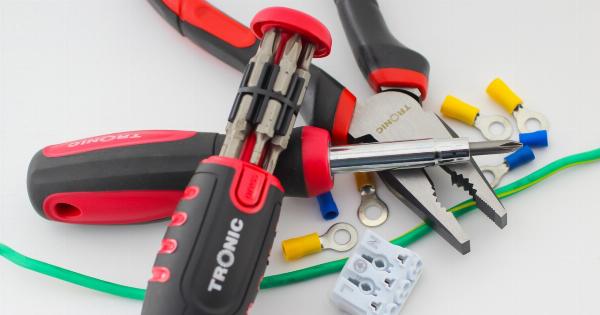Teeth grinding, also known as bruxism, is a condition characterized by the involuntary grinding and clenching of teeth. This condition often occurs during sleep, making it difficult to control.
However, there are several steps you can take to deal with teeth grinding and protect your oral health. In this article, we will explore six effective measures you can implement to tackle this issue.
1. Identify the Symptoms of Teeth Grinding
The first step in dealing with teeth grinding is to identify whether you are indeed suffering from this condition. Some common symptoms of bruxism include:.
- Worn-down tooth enamel
- Increased tooth sensitivity
- Jaw pain or soreness
- Headaches
- Facial pain
- Earaches
- Disrupted sleep patterns
If you experience any of these symptoms or suspect that you may be grinding your teeth during sleep, it is essential to take action to prevent further damage.
2. Consult a Dentist
To effectively deal with teeth grinding, it is advisable to seek professional help. Schedule an appointment with your dentist who will examine your teeth and evaluate the extent of damage caused by bruxism.
They might also recommend dental x-rays to rule out any underlying dental conditions or abnormalities.
Your dentist can provide valuable insights into the potential causes of teeth grinding and suggest suitable treatment options based on your specific situation.
3. Stress Management Techniques
Stress is often closely linked to teeth grinding. If you find yourself frequently grinding your teeth during periods of stress, incorporating stress management techniques into your daily routine can be highly beneficial.
Some effective stress management strategies include:.
- Meditation and deep breathing exercises
- Regular exercise and physical activity
- Engaging in hobbies or activities you enjoy
- Taking time for self-care and relaxation
- Seeking professional help, such as therapy or counseling
By managing stress levels effectively, you can reduce the likelihood of teeth grinding episodes during sleep.
4. Use a Mouthguard
A commonly recommended treatment for teeth grinding is the use of a mouthguard. A mouthguard acts as a protective barrier between your upper and lower teeth, preventing them from grinding against each other.
It also helps to alleviate jaw muscle soreness and protect your tooth enamel.
Your dentist can custom-fit a mouthguard for you, ensuring it sits comfortably on your teeth. Alternatively, over-the-counter mouthguards are available, but they may not provide the same level of comfort and protection as a custom-made one.
5. Avoid Stimulants
Stimulants such as caffeine and nicotine can exacerbate teeth grinding. Therefore, it is advisable to limit or avoid the consumption of these substances, especially in the afternoon and evening.
Instead of relying on caffeine to stay alert, opt for healthier alternatives like herbal teas or decaffeinated beverages. By reducing your intake of stimulants, you may notice a decrease in teeth grinding episodes.
6. Practice Jaw and Tongue Exercises
Strengthening the muscles in your jaw and tongue can help alleviate teeth grinding. Incorporate simple exercises into your daily routine, such as:.
- Opening and closing your mouth slowly and gently
- Gliding your lower jaw forward and backward
- Pressing your tongue against the roof of your mouth and holding for a few seconds
- Chewing sugar-free gum to promote jaw muscle relaxation
Performing these exercises regularly can help reduce the intensity and frequency of teeth grinding.
By following these six steps, you can effectively deal with teeth grinding and protect your dental health. Remember, it is essential to consult a dentist for an accurate diagnosis and personalized treatment plan.






























